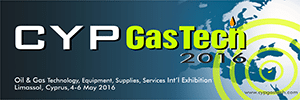A much “favorited” tweet of Cyprus High Commissioner Euripides Evriviades is a photo titled “The King and I” of him beside his Road King Classic Harley Davidson in front of Buckingham Palace.
Coming from Cyprus and with a name like Euripides one might think him prone to tragedy but this High Commissioner is a consummate professional who approaches the job with good humour and energy at full throttle.
On the eve of the 40th commemoration of the Turkish invasion of the northern part of Cyprus in 1974, the High Commissioner thinks it’s time diplomacy stepped up a gear: “The current situation is unacceptable and unsustainable. We must move forward with courage, resolve and vision in solving the Cyprus question.”
The basics of a solution are well known, “But the key remains in Ankara,” he says. “It is their troops which are occupying the northern part.” Furthermore, the solution must be in accordance with European values and the EU’s political, democratic and legal order, he stresses. “What applies for 27 members must surely apply for the 28th.”
Debunking Turkey’s concerns for the human rights of the Turkish Cypriots, he says: “We have had more than 40 million incident-free visits since the ceasefire line was opened up in 2003,” adding that as Ambassador to the Council of Europe (2008-11) he offered to accept all human rights monitoring mechanisms, on condition the troops withdrew. “They have no place in today’s Europe.”
Asked if Turkey’s EU aspirations could move the reconciliation process along, the High Commissioner says that he hopes so: “We support Turkey’s membership. Our geography is our destiny. But it should be clear that it is Turkey joining the EU and not the EU joining Turkey.”
Turkey’s “gunboat diplomacy” in Intercepting vessels exploring for gas in Cyprus’s exclusive economic zone (EEZ) sends out “bellicose messages” he warns. Under international law, exploration in the EEZ is legal, claims Evriviades, who was part of the Cypriot delegation to the UN for the drafting of the Law of the Sea treaty (which Turkey has not yet signed).
Game changer
But the discovery of hydrocarbon deposits could offer an opening for cooperation. “This could be our region’s version of the Coal and Steel Community, the genesis of the EU, where economic and political interests overlap. It could be a game changer,” he says.
Diversifying Europe’s energy sources has become more urgent with the crisis in Ukraine, as the US Vice President’s recent visit to Cyprus demonstrated.
The precedent set in Cyprus in 1974, where a powerful state with geostrategic interests intervened unopposed in a neighbouring state whose sovereignty it had guaranteed to protect has returned yet again to haunt the international community with Russia’s actions in the Crimea.
“We know from bitter experience that there is no guarantee that guarantees the guarantee,” he sighs.
Although Russia and Cyprus enjoy excellent ties, the position of Cyprus remains principled, he says: “Unless there is a mutually agreed solution between parties, we cannot recognise [the independence of states] or sanction any violations of the sovereignty of any state.”
But Russian sanctions will have a negative impact on the Cyprus economy, he admits. It’s a double blow for a country reeling from the “bail-in” crisis where the deposits of ordinary Cypriots were raided to bail out failing banks.
He describes the measure as “highway robbery,” while admitting Cyprus should also be blamed. Food banks have reappeared and youth unemployment soared to almost 40%. An important part of the High Commissioner’s role is also reaching out to the 300,000 Cypriot strong diaspora for investments and trade.
The impact of the bail-in has gone beyond Cyprus, he warns: “Foreign investors will think twice to invest in eurozone countries.”
Nevertheless, the economy is improving and the approval rating of the EU remains high among Cypriots after a decade in the EU club.
Adopting the EU’s acquis communautaire has been positive for Cyprus, he says. In return, Cyprus has offered the EU a “predictable and dependable partner in the strategic corner of the often volatile Eastern Mediterranean.”
The location of Cyprus adds an important dimension to the strategic partnership between Cyprus and Britain, which controls two base areas on the island, he adds.
The recent visit of President Nicos Anastasiades to the UK reinforced what the High Commissioner describes as an “umbilical relationship” between the two nations.
Evriviades takes up his post as Britain faces the possible secession of Scotland and exit from the EU. “Without wanting to interfere,” he says, “Cyprus favours a strong United Kingdom in a stronger EU.”
The High Commissioner seems drawn to complex posts: he was in a divided Germany before the Berlin wall fell (1986-88), followed by Moscow (1988-93) where he watched with his wife (his “unsung hero”), as the Soviet flag was lowered and the Russian flag was raised; and he was Ambassador in Israel when the second Intifada erupted (1997-2000). The Hague (2000-03) was at the centre of ICJ territorial disputes; and while serving in Washington bases in Cyprus played a critical role in the Iraq war.
There will be more twists and turns to High Commissioner Evriviades’s high-octane career, but for a diplomat with his drive, these only serve to make the journey more interesting.
Elizabeth Stewart, the editor of Embassy Magazine interviewed the High Commissioner for Cyprus on 8 May
Published by: www.embassymagazine.com























